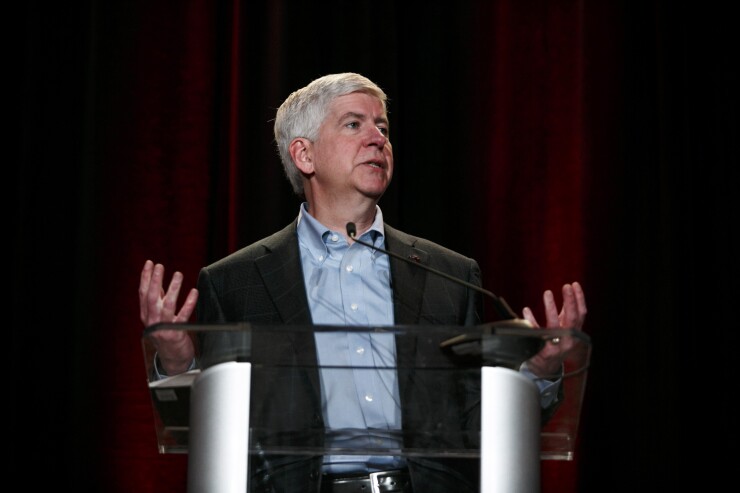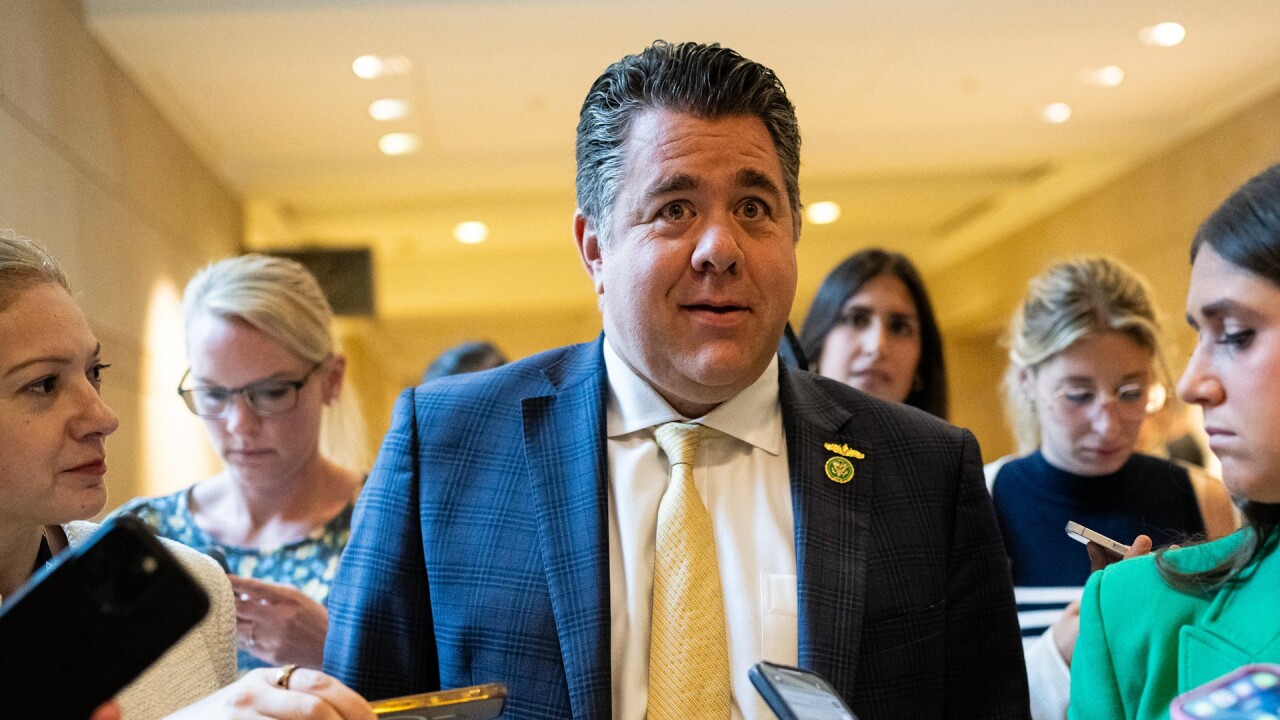Michigan Gov. Rick Snyder unveiled a $56.8 billion state budget that calls for roughly $300 million in increased spending on road repairs and K-12 education.
Snyder’s eighth and final budget covers spending for fiscal 2019, which begins Oct. 1. It calls for a mix of new “investments” that would largely be offset by other spending reductions and anticipated savings.
Snyder portrayed the plan as one that builds up on past work.
“The budget I presented today is exactly what we need to keep the state moving in a positive direction,” Snyder said in a statement, adding that the support in areas of education, safety, and transportation will benefit the "the strategic initiatives we have implemented over the years.”

The budget features the largest kindergarten through 12th grade minimum foundation allowance increase in 15 years.
“It’s an important way to provide resources to improve our schools,” Snyder said during the presentation. “It’s a good opportunity to give some to the operations of the schools that hopefully makes a difference in the classroom.”
Snyder’s plan would raise the foundation allowance for K-12 schools by $120 to $240 per student, depending on the district, at a cost of $312 million.
"This is a significant increase and would close the equity gap between the high and low from the time we started by over 50%, which is very significant because we have many districts that are at the minimum," Snyder said.
Snyder's plan also calls for an additional $50 for each high school student who is enrolled in a career or technical training program. Public universities would see a 2% funding increase under the plan.
Republican legislative leaders touted the education investments.
“School funding has increased by nearly $2 billion during my time in the Senate,” Senate Majority Leader Arlan Meekhof, R-West Olive, said in a statement.
Michigan has for a number of years made large payments to the Michigan Public School Employees Retirement System, of roughly $1 billion per year, Snyder said. “The good part is that we are on a fully funded path as long as we continue the payment stream for the next 20 some years,” he said.
The spending plan also would accellerate the state’s commitment to road funding by $175 million for a total of $325 million. This more than doubles the $150 million under a 2015 transportation-funding deal that is gradually being phased in. Snyder said the money was a one-time infusion funded by "lapse" funding, or funding the state appropriated for specific causes but didn't end up using.
Snyder said he believes the impact will be positive in local communities. “We have had some huge projects going but I would really like to step it up and accelerate some of these programs.”
Democrats had mixed reactions. House Appropriations Minority Vice Chair Fred Durhal Jr., D-Detroit, said he liked the additional funding Snyder proposed.
But Senate Minority Leader Jim Ananich, D- Flint, said the spending was seven years late and many dollars short. “He's throwing pennies at our roads and schools and crossing his fingers that it makes up for his legacy of shortchanging Michiganders,” Ananich said.
Snyder is also recommending a one-time $25.9 million investment in Flint with the largest portion of funding going to replace lead service lines being undertaken in the wake of the city's water contamination crisis.
The state’s rainy day fund will reach nearly $922 million in fiscal 2019 which stood at about $2 million when Snyder took office in 2011. Snyder said that the state needs to set aside more to build up reserves.
“We don’t have the recommended amount we should have in savings account for that rainy day.” Snyder said.
A December report from the Citizens Research Council, a not-for-profit public affairs research organization, said that the rainy day fund won’t last long if a recession of any severity strikes.
S&P Global Ratings revised the outlook on Michigan's AA-minus rating to positive from stable in September. The rating agency also affirmed the A-plus rating on the state’s appropriation-backed debt.
Moody’s Investors Service rates the GO bonds Aa1 and Fitch Ratings affirmed its AA ratings on the bonds. Both assign stable outlooks.
S&P noted several factors that could affect their future outlook on the state's fiscal health, including long-term pension and retirement obligations, fiscal stress in local governments and an infrastructure funding gap.





